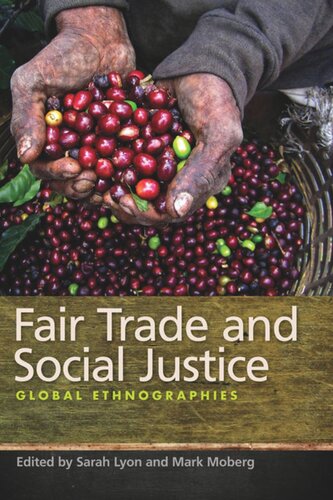

Most ebook files are in PDF format, so you can easily read them using various software such as Foxit Reader or directly on the Google Chrome browser.
Some ebook files are released by publishers in other formats such as .awz, .mobi, .epub, .fb2, etc. You may need to install specific software to read these formats on mobile/PC, such as Calibre.
Please read the tutorial at this link: https://ebookbell.com/faq
We offer FREE conversion to the popular formats you request; however, this may take some time. Therefore, right after payment, please email us, and we will try to provide the service as quickly as possible.
For some exceptional file formats or broken links (if any), please refrain from opening any disputes. Instead, email us first, and we will try to assist within a maximum of 6 hours.
EbookBell Team

4.7
56 reviewsBy 2008, total Fair Trade purchases in the developed world reached nearly $3 billion, a five-fold increase in four years. Consumers pay a “fair price” for Fair Trade items, which are meant to generate greater earnings for family farmers, cover the costs of production, and support socially just and environmentally sound practices. Yet constrained by existing markets and the entities that dominate them, Fair Trade often delivers material improvements for producers that are much more modest than the profound social transformations the movement claims to support.
There has been scant real-world assessment of Fair Trade’s effectiveness. Drawing upon fine-grained anthropological studies of a variety of regions and commodity systems including Darjeeling tea, coffee, crafts, and cut flowers, the chapters in Fair Trade and Social Justice represent the first works to use ethnographic case studies to assess whether the Fair Trade Movement is actually achieving its goals.
Contributors: Julia Smith, Mark Moberg, Catherine Ziegler , Sarah Besky, Sarah M. Lyon, Catherine S. Dolan, Patrick C. Wilson, Faidra Papavasiliou, Molly Doane, Kathy M’Closkey, Jane Henrici